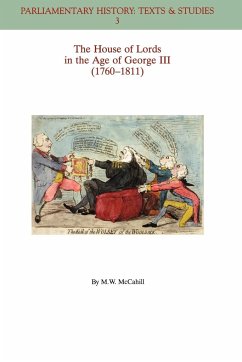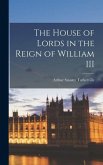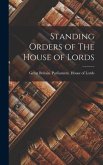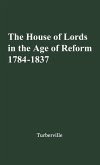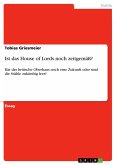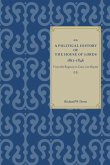The first full assessment of the place of the 18th-century peerage and house of lords in 50 years uses statistical and anecdotal evidence to create a variegated portrait of the nobility, its political outlook and the ways in which the nobility's multifarious roles combined to shape its members' conduct as lords of parliament. The book challenges the assumption that the Lords remained a creature of the crown and demonstrates that peers and bishops were useful, informed and broadly connected legislators. Although the House became the object of increasing criticism because of the majority's opposition to such popular issues as the abolition of the slave trade or the dismantling of 'Old Corruption', effective leadership, the peers' growing parliamentary interests and their appreciation of the limits of their authority prevented the Lords from becoming an intransigent barrier to innovation.
Hinweis: Dieser Artikel kann nur an eine deutsche Lieferadresse ausgeliefert werden.
Hinweis: Dieser Artikel kann nur an eine deutsche Lieferadresse ausgeliefert werden.
"McCahill's painstaking research and careful scholarship combine to make this book an indispensable study of the aristocracy during the reign of George III, particularly in its parliamentary role." (The Journal of Interdisciplinary History, 9 February 2011)
"But, for those wishing to gather information about the constituency and workings of the Lords and its political outlook, this is a seminal work." (EHR, 1 April 2011)
"But, for those wishing to gather information about the constituency and workings of the Lords and its political outlook, this is a seminal work." (EHR, 1 April 2011)

